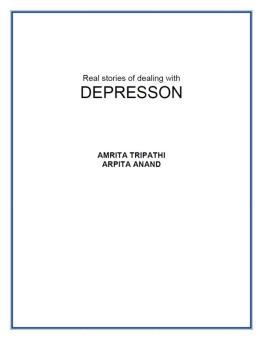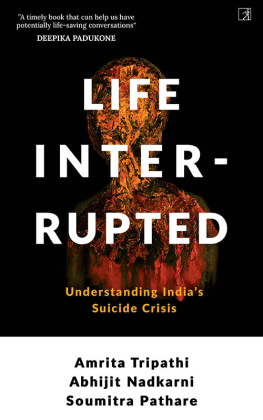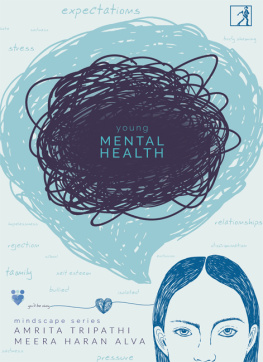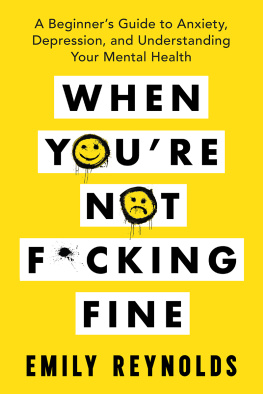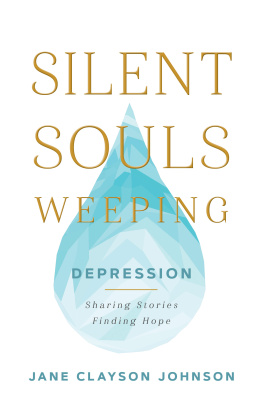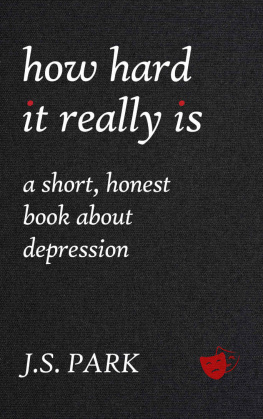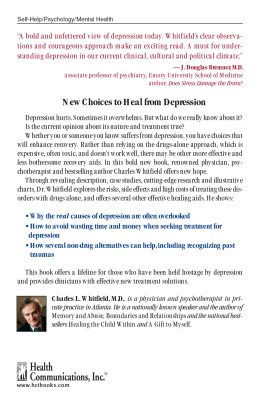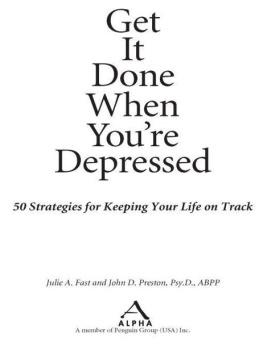


INTRODUCTION
There are many different ways to talk about mental health and mental illness in India, but probably even more ways to not talk about the subject, which has been the norm for generations. Families of those who have someone suffering from a mental illness, including mine, know what it is like to talk in hushed tones, or not quite refer to a diagnosis, or pretend not to hear the words, the insults, the cruelty inherent in the word crazy or pagal, or the jokes inherent in sending someone to Agra, home to the famous asylum established back in 1859.
Many will know or relate to the sneaking horror of what it meant to talk about being institutionalised or of having to go through electroconvulsive shock treatment, a generation or two ago, (and even today!), not to mention the creeping fear that maybe we have it in our genes too. Our genes are loaded on both sides, a loved one said. That they are. And perhaps nothing scares us as much as the worry that the mind can unravel, can work against us so painfully and abruptly the ultimate betrayal.
But in many ways, we learn we are not alone. While setting up a site like The Health Collective (www.healthcollective.in), which aims to be an online safe space for credible information and conversations around mental health and illness in India, we learn almost weekly that we are far from unusual whether in suffering, or in the need to talk openly, or even in the need to conquer those fears. We are certainly a collective force to be reckoned with, when you think about the drive to defeat discrimination and stigma. All of a sudden, more of us are finding the space or creating the space to talk openly about mental illness. Or rather, not all of a sudden its more like the culmination of decades of work by ground-breaking pioneers in the field.
But each one of us has a role to play here to learn to empathize, to raise our own levels of awareness when it comes to mental disorders, and to practise kindness. Whats the easiest thing you can do, starting today, this very minute? Think before you speak. A powerful comic in this book drawn by Kishore Mohan based on a readers experience shows how much damage can be done with each insult/slur that we use so lightly.
This book is nothing but a collective effort we relied heavily on folks who were comfortable sharing their stories on dealing with depression, letting them talk to us in their own words about the ups and downs, and their path to healing. We did a few rounds of follow-up questions and very minimal, light edits, out of respect to those unique journeys.
Its always hard to talk about some of the darkest and toughest times, and each of our contributors showed an incredible amount of grace and courage in digging down, working through potential triggers, all in an effort that their stories may resonate with someone else, who might recognise that they are not alone, not different, not freaks or cursed; that they have nothing to be ashamed of. That is how we hope to work together to normalise the conversation.
People shared their stories with us, some openly, some under a pseudonym or anonymously, but all courageously, profoundly brave and descriptive and able to express what its like to live with a condition, whether its the Black Dog of Depression (which the World Health Organisation powerfully visualised with the writer and illustrator Matthew Johnstone back in 2012 with a YouTube video that now has some nine million views), or a combination of depression and anxiety, one of the most common co-morbid conditions.
They have spoken openly about many dark chapters, including suicidal ideation, self-harm, nervous breakdowns. Theyve talked about the loss of hope, the pointed barb of ridicule and humiliation, the panic and fear that things will not get better, the never-ending spiral of shame and guilt. But it has not been never-ending; there has been an end, a break in the clouds of grey, an easing of the pain. There has been hope, yes, and incredible resilience. There has been healing, above all, healing that has led them here to this moment in their journey, which now intersects with yours.
Whoever you are, holding this book or reading these words, these stories will be a part of you, the brave people sharing some of their most personal moments will be a part of your narrative. May their words ease your burden, give courage where required, and above all, hope for change. We arent going to sit here and claim that things get better overnight, or even that there is a quick fix or sure-shot way to get better but what we do know is that better is right around the corner. We hope that wherever and whoever you are, you hear us and believe it. We are sharing a list of resources for India at the end of this book. We also want to make it clear that its not for everyone to share a personal story. In no way is your journey less valid or authentic if you dont want to talk about it or share it in public. You are the best judge of that, and shouldnt feel pressurised.
But we do have some larger messages for you. As Dr Vikram Patel told us in an interview to The Health Collective, The best guardian of your own mental health is yourself. Be equipped with knowledge and skill on how to protect and promote your own mental health, but equally remember that there is nothing brave about struggling alone, and if you have got mental health experiences that are very distressing, speak to someone. It could be a friend, it could be a family member, a counsellor, it could be a mental health professional. But dont just lock it up inside yourself.
That is something worth thinking about. Excerpts from that interview are part of this book, as well as inputs and insights from psychologists like Meera Haran Alva, psychiatrist Dr Achal Bhagat, and, of course, close commentary and advice from my co-author, psychologist Arpita Anand.
There is a huge disclaimer to be made though, at the start of this book. These are all very individual stories from across India, and they are as inclusive as we could find that we were privileged enough to be the recipients of but there are many, many more stories to be told, and many many more Indias than just the urban, English-speaking one. We are aware of these limitations and will consider this as the first of the series, the start of the endeavour to collectively spread awareness and share stories, to tackle discrimination and stigma together. Do feel free to reach out individually with your thoughts and plans (contact info has been provided at the end of this book).
As we kick off this journey, psychologist Arpita Anand will take us through some of the key basics when it comes to understanding depression. Youll also hear from others as mentioned, psychologists and psychiatrists throughout the book, as well as the experts the people who know more about their individual conditions than anyone else. The incredible illustrations and comics are by Kishore Mohan and Pia Alize; sometimes it is true what they say, right? A picture is worth a thousand words!

WHAT IS DEPRESSION?
Depression is a common mental disorder. It affects the way a person thinks, feels and acts. The condition has an impact on the overall functioning of the individual and tends to affect their physical and mental wellbeing.
Next page
